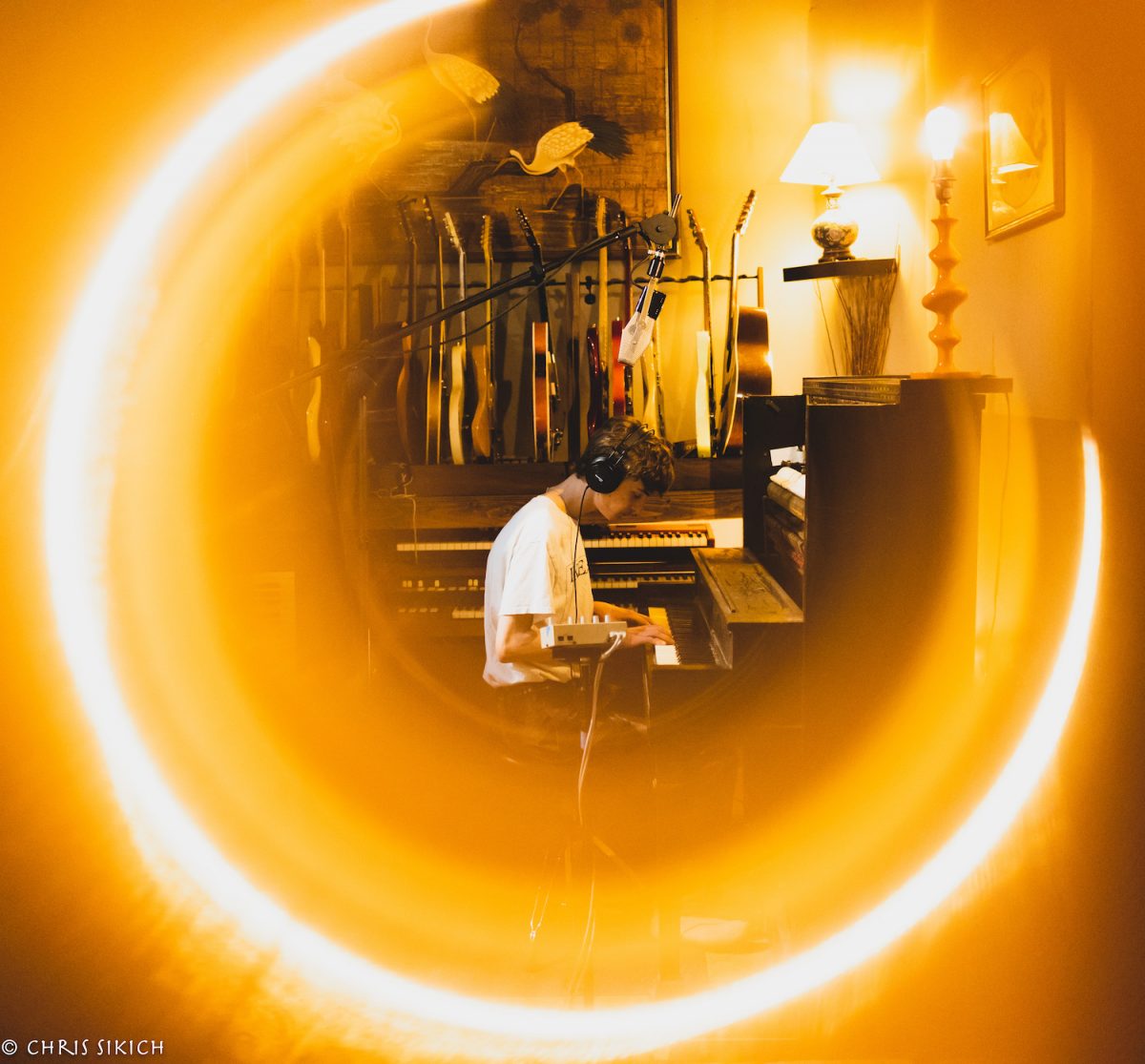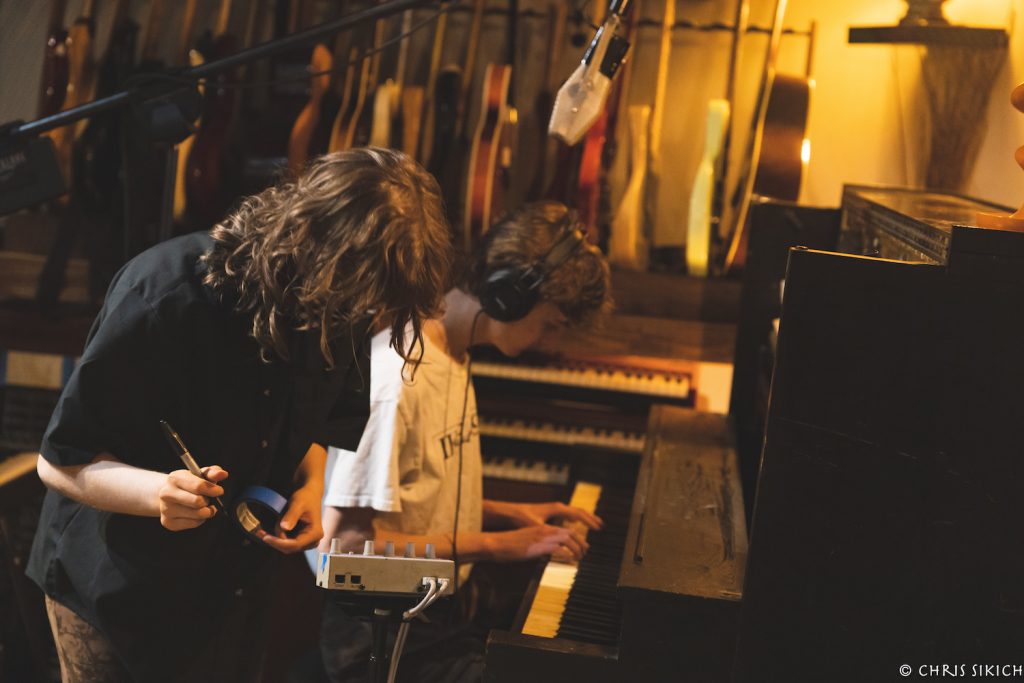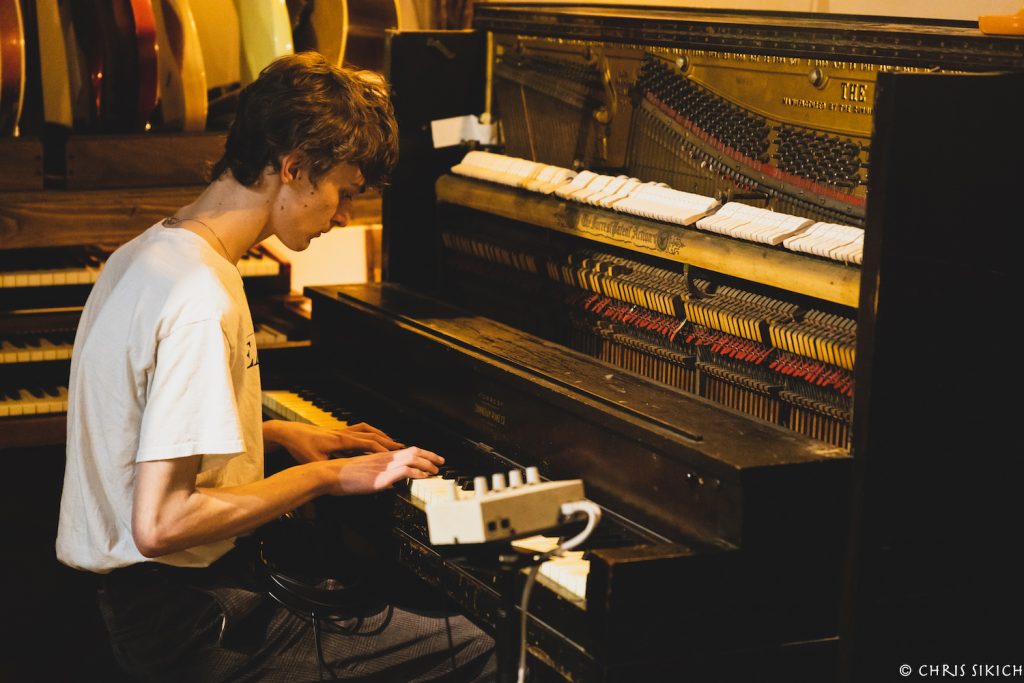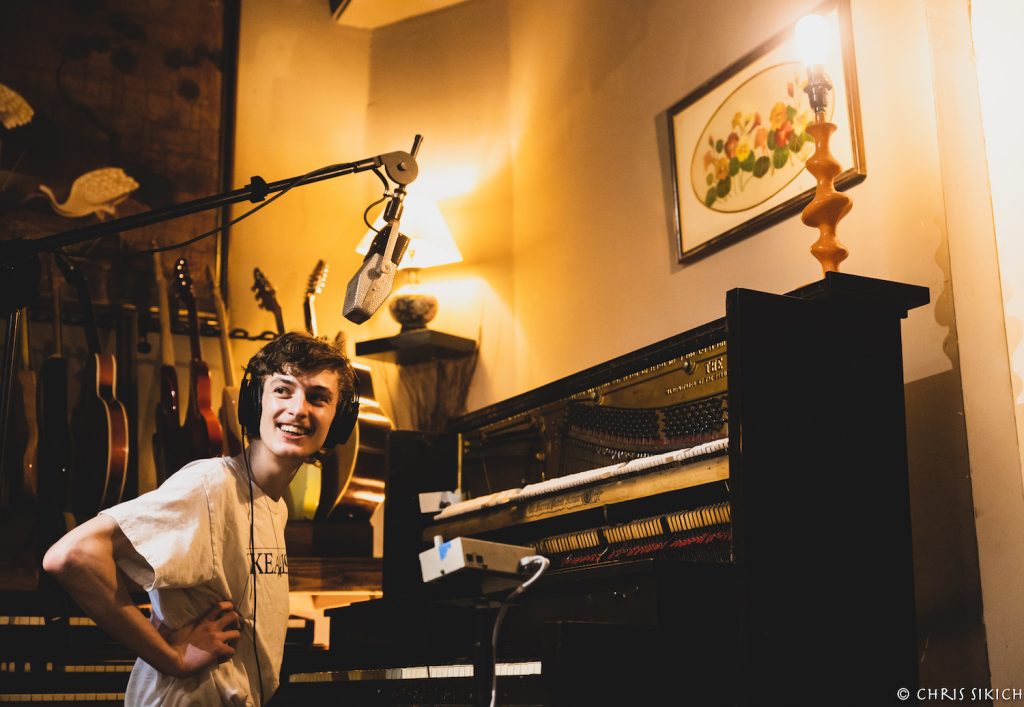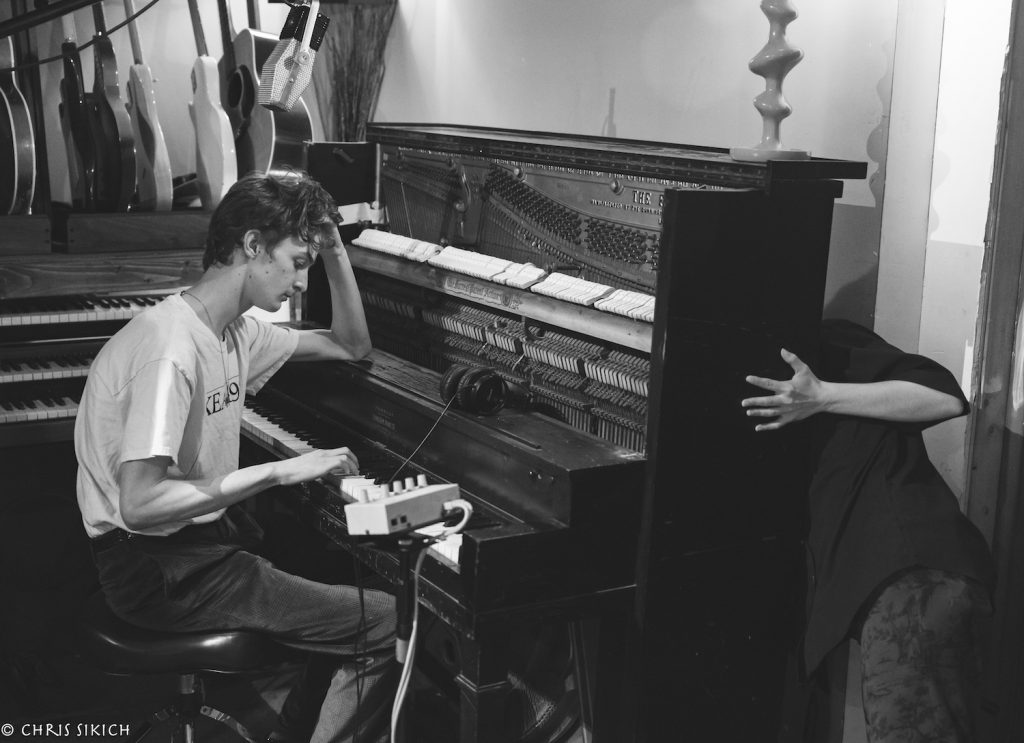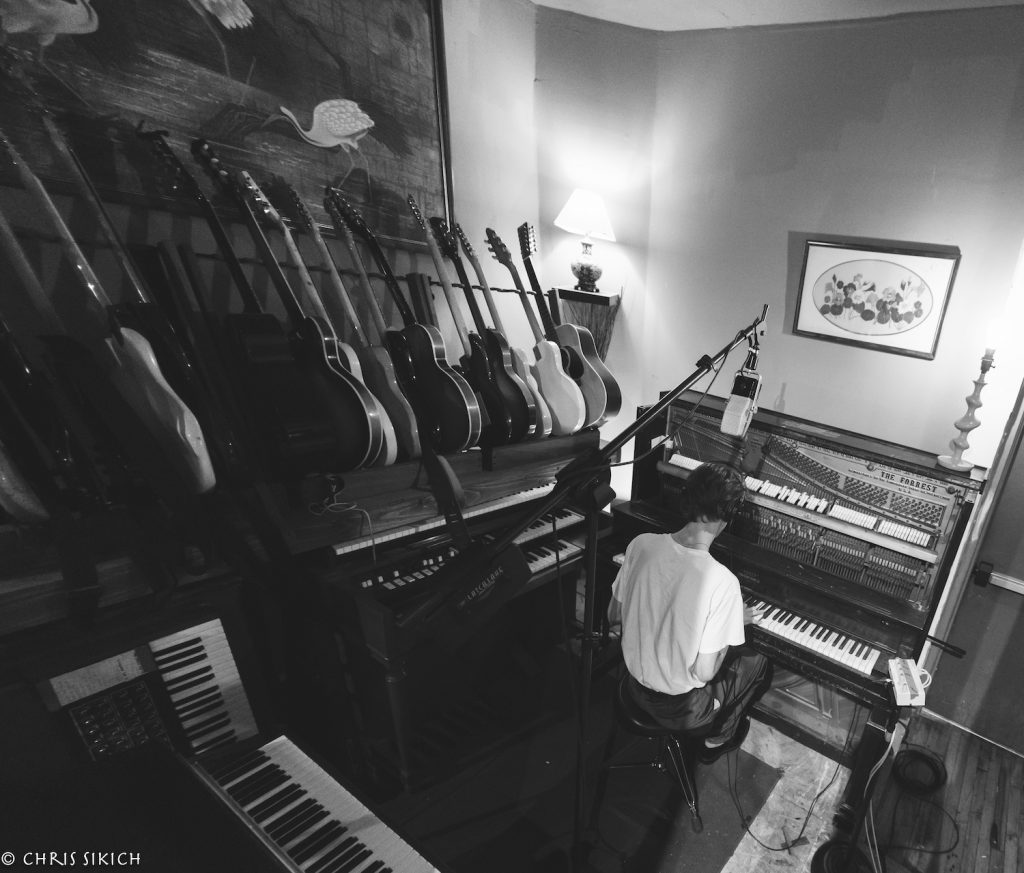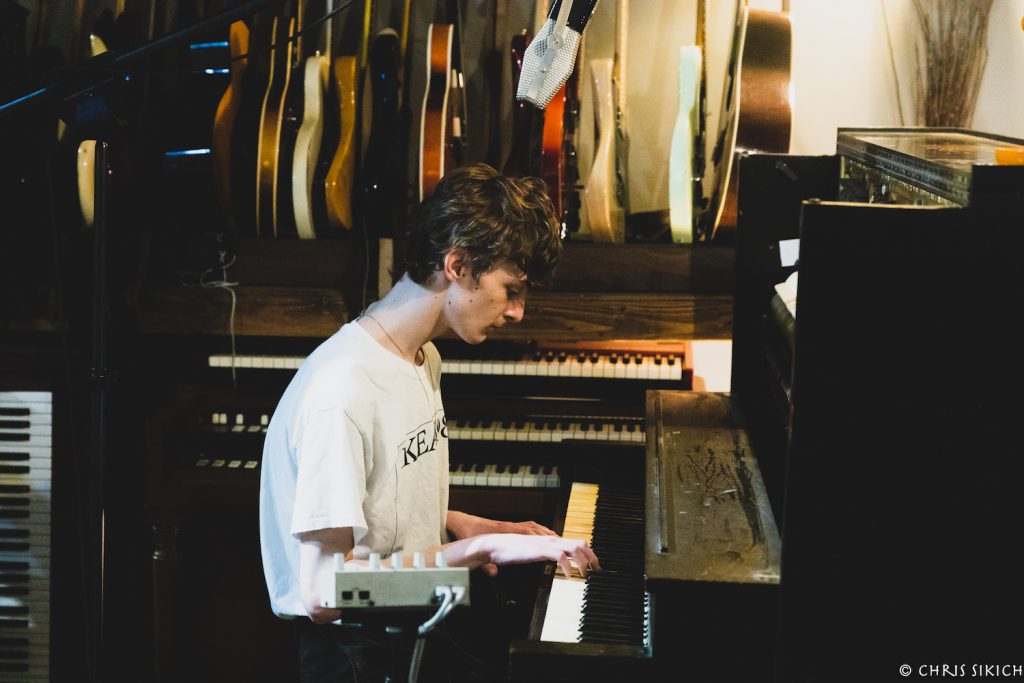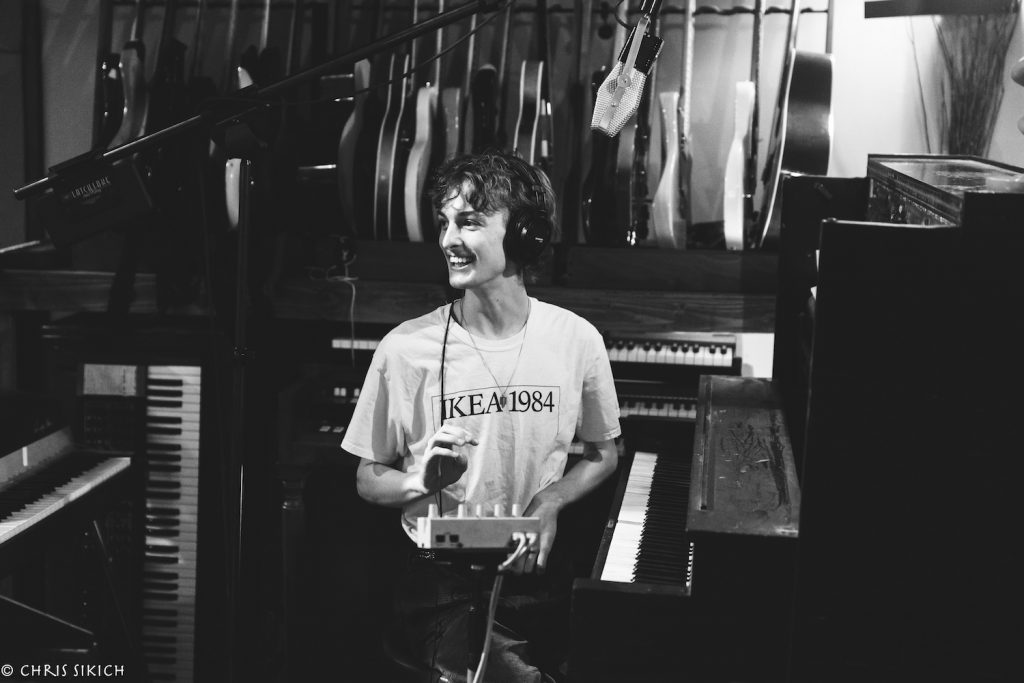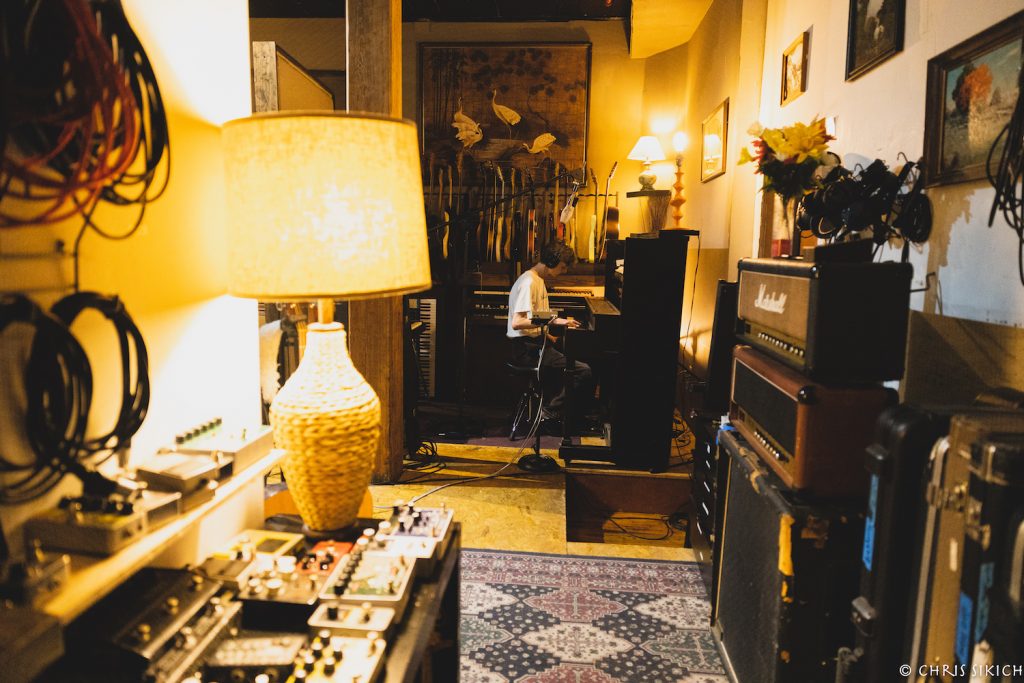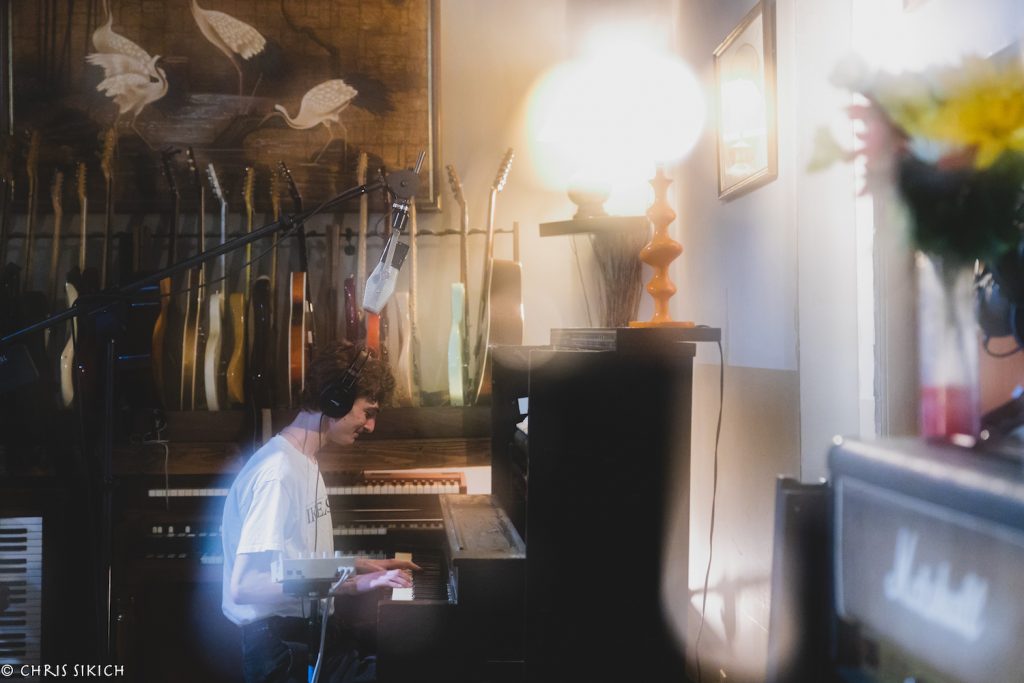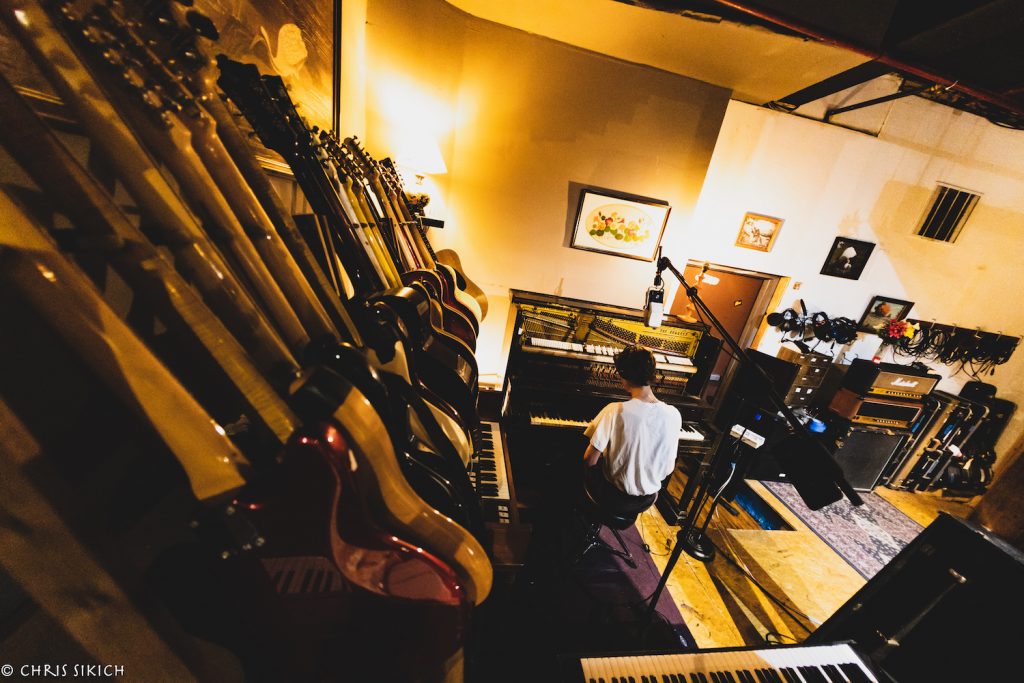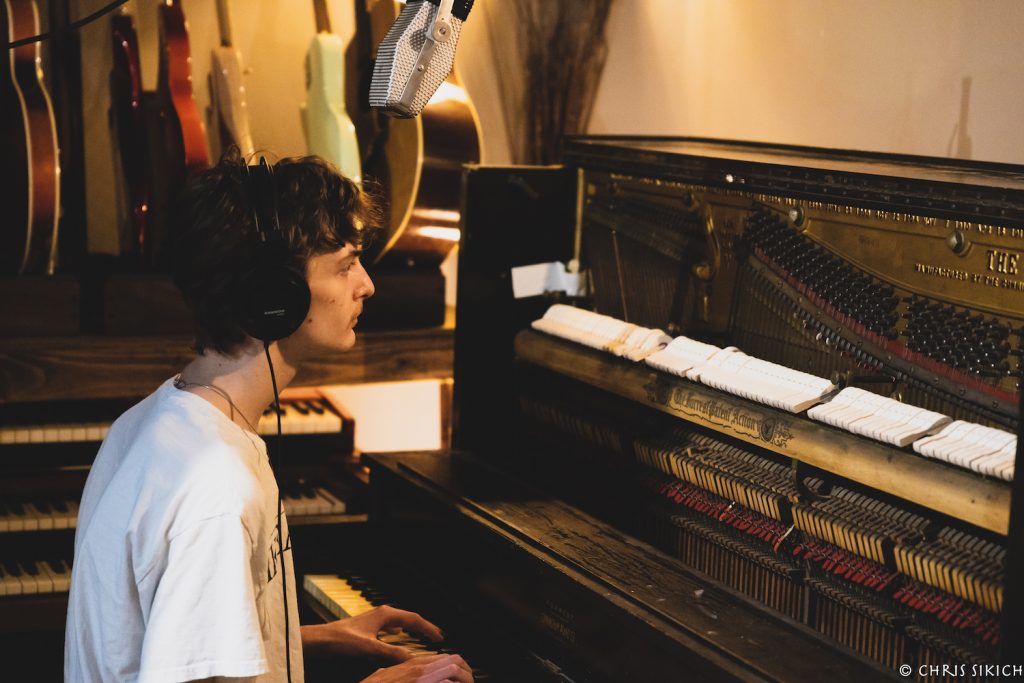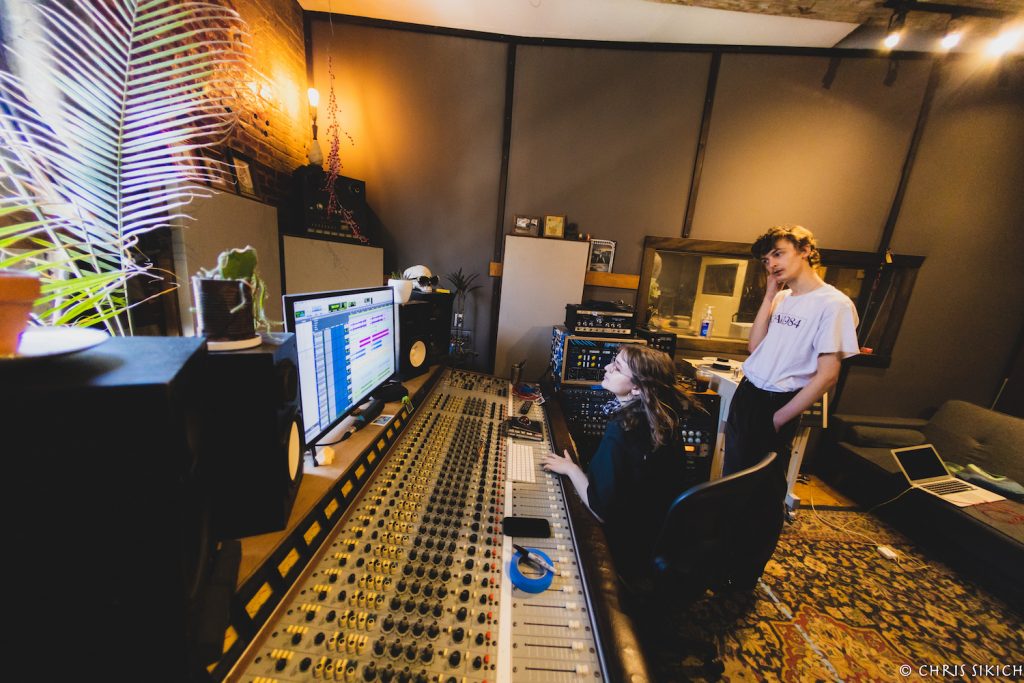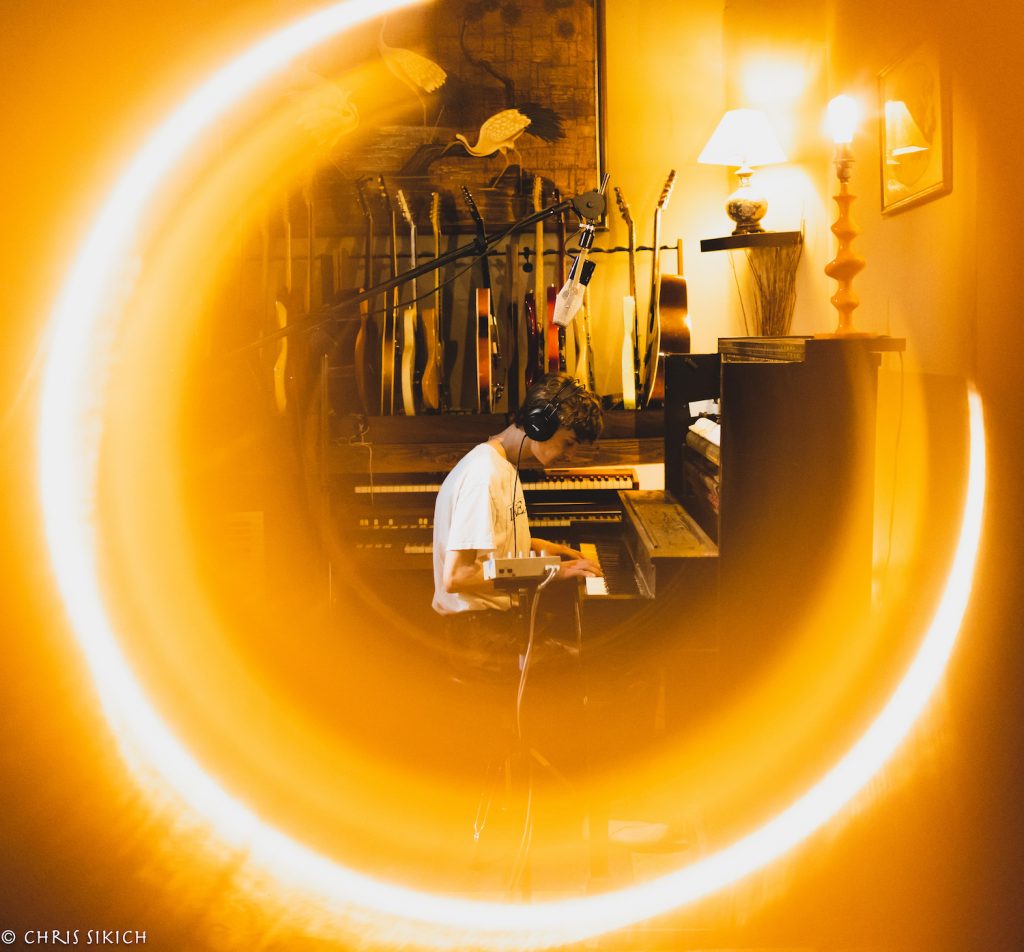
With Isolation Drills, MAGNET has been checking in with Philadelphia-area musicians during the pandemic, while Where We Belong shines a light on our beloved local venues. Now that our city is opening again, MAGNET has launched Philadelphia Freedom to explore what happens next with our music scene, post-quarantine. Photos by Chris Sikich.
Bobby: The two most important things that happened to me during the past year were getting over my fear of spending money and being shot at during the protests in early June.
I was raised, “Protestant ethic”-style, to be extremely careful with money. Luckily, I was able to land a job as a social worker that made my financial neuroticism self-evident, and with shows and clubs being closed, I had extra time and money to go toward my interests. I got into clothing in a serious way, obsessing over design and fabric quality, which gave me a window on how people who aren’t musicians actually use music.
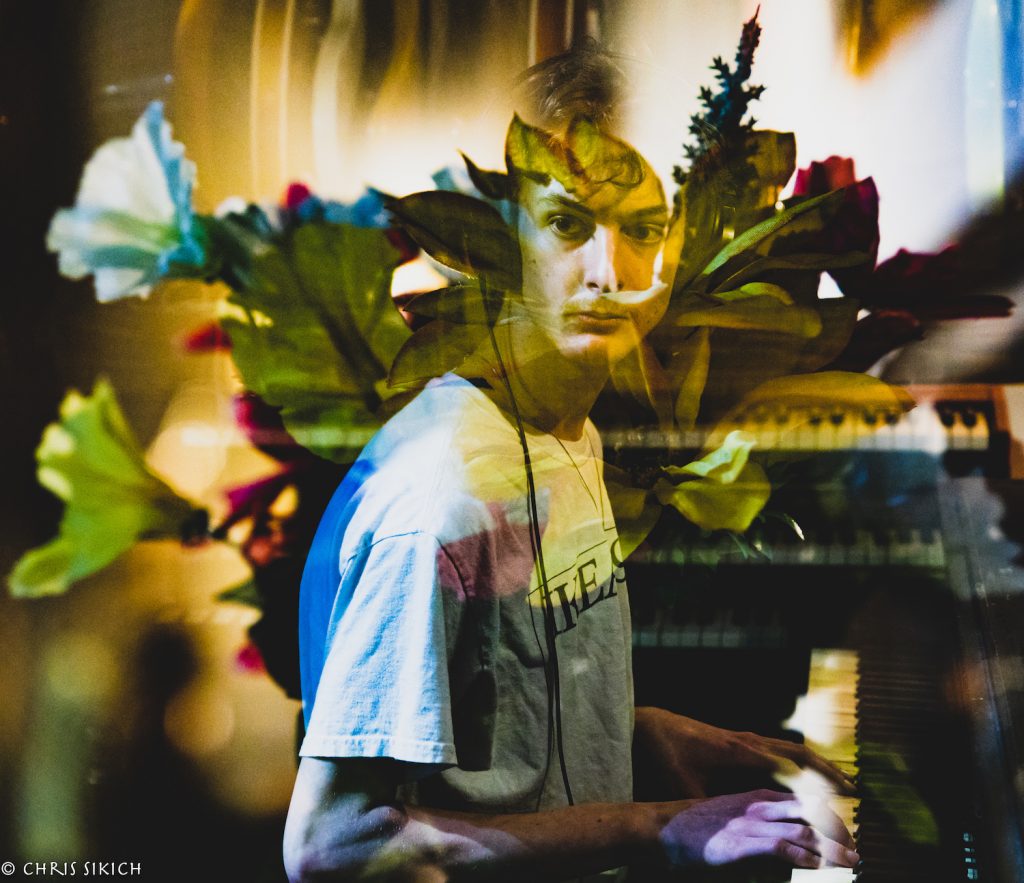
Before anything else, music is a way of decorating our time. After thinking carefully about my work as a presence in people’s day-to-day life, I consciously tried to make my writing and production more focused, more immediately pleasurable. When I was a teen, I was overly serious and sexually repressed, and I saw pop music as a frivolous waste of time. Now I feel there could be nothing more serious than simple pleasures like a memorable melody or perfect beat, and I really hope that my music can affect people both physically and emotionally.
In the past year, I’ve also had the money to pay my musical collaborators well, and to invest in gear that I had wanted for a long time. I bought a Prophet 6 analog synthesizer last November, and it’s found a space on every track I produce. It can pull off impeccably smooth pads and can also handle harsh, acidic textures for bass and arpeggios. Since releasing my first official album, Pay My Rent, last June, it’s really dawned on me that the records I put out will continue to exist, and be new for others long after I’m finished with them. I want to put everything I can toward making these time capsules as fully realized as they possibly can be—no feeling is worse than looking back to find I didn’t have the patience to give my songs the time and attention they needed.
On the opposite side of things, I was emotionally galvanized by the police response in the wake of George Floyd’s murder. After we had marched down Vine Street that Saturday, a National Guard APC rolled up unprovoked and began shooting into the park on 22nd Street where my boyfriend and I were resting. After being let on to the highway to march, several of my friends were among those trapped as police fired tear gas into the crowd. Outside of City Hall, a police officer beat my roommate with a baton to the point that he had to be rushed to the emergency room and have staples put in his head to stop the bleeding.
Seeing violence firsthand—officers kettling protestors, the actual effects of tear gas and pouring baking-soda water into someone’s eyes to stop the burning, the visceral rush of adrenaline when shots go off and the ambient fear of being intentionally deafened by an LRAD to maintain a destructive social order—played a role in my music becoming more physical. Walking down Chestnut Street as corporate stores were broken into and looted was a total revelation; it was a moment of real pure joy and mass excitement.
After that day, I saw joy as a hard-won and temporary ceasing of pain instead of a cheapened Hallmark Christmas gesture. Joy and pain are connected at the hip, and the songs on this album are more emotionally nuanced for that realization. While many of the songs I’ve written for this most recent album are basically about rejection and suffering, I’ve made sure they aren’t one-sided, confessional slices of pain.
I’m glad I’m not a poet, because it always bothers me when writers and critics appraise the value of a work on the legibility of its trauma. One new track that I’m extremely proud of was inspired—secondhand—by PnP, one of the darker parts of gay culture. Seeing that subculture, with its levels of desperation, invitation and transgression, I tried to craft the song from many sides and bring out the joy and transcendence of a temporary release, not just the pain.
Every day for the past six months, I’ve worked on the arrangements and production of the same eight songs in Ableton. I haven’t even released the EP I finished in November, so I figured I might as well spend as much time as I need to refine these songs while waiting for the world to reopen. I’m pretty desperate to play a release show with Rentboy’s new lineup, as we only had two shows together before quarantine. The first day of quarantine was coincidentally when the first single of my last album dropped, and we played an Instagram Live show, but the experience was very underwhelming. There’s nothing erotic or vital about a digital show, and no energy to play off of, so I didn’t even try to promote the last record.
The day in the studio these photos were taken was the first proper studio session for this record. I spent most of the 12-hour session tracking acoustic piano and Fender Rhodes, and then two of my friends came in and added percussion and handclaps to a few songs. I’m really grateful to have a close group of musical friends who always manage to fill the gaps I’m incapable of closing in my arrangements. Especially grateful to Johanna (who just released a great album under the name janna) for making time in her ridiculously packed schedule to record vocals and engineer these tracks.
When the world opens, you can find me lounging about on Dustbunny’s roof deck. Hope to see you all there!


